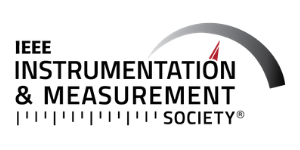Edge Computing for Medical IoT: From Sensors, Algorithms and Applications for Wearables and Implantable HMIs
SESSION ORGANIZERS
Dr. Simone Benatti
Dr. Simone Benatti received a PhD. degree in Electrical Engineering and Computer Science from the University of Bologna, in 2016 (PhD. advisor prof. Luca Benini). During his PhD., Dr. Benatti designed a complete HMI for prosthesis control, implementing a fully-functional framework for EMG gesture recognition based on an embedded real-time SVM classifier. After this project, he worked on designing and optimizing energy-efficient embedded systems for biopotential (EMG and EEG) acquisition and processing, in collaboration with the IIS lab at ETHZ, Zurich. In 2015, during a six month visiting period at BWRC – University of California, Berkeley (supervisor prof. Jan Rabaey), he designed the control module of an implantable Brain-Machine Interface for PTSD (Post Traumatic Stress Disease). He currently serves as assistant professor at the University of Bologna, in the department of Electrical Engineering, Telecommunications, and Information Technology. His research interests focus on energy-efficient embedded systems for IoT and biomedical applications. This includes hardware/software codesign to efficiently address performance, as well as advanced algorithms. In this field, he has published more than 50 papers in international peer-reviewed conferences and journals. He has ongoing collaborations with several international research institutes, such as ETHZ, UC Berkeley, EPFL, TU Graz, FBK and Politecnico di Torino. Dr. Benatti is recipient of the GHAIA grant (H2020-MSCA-RISE-2017, G.A. 777822).
Previously, from 2006 to 2012, he was employed as design and R\&D engineer of electromedical devices at Lean srl, where he was involved in international industrial projects with companies such as Erydel, ST Micorelectronics, Arthrocare, Medical Vision, Livanova, Baxter et \textit{al.}
Dr. Victor J. Kartsch Morinigo
Dr. Victor J. Kartsch Morinigo received a Ph.D. degree in Electrical Engineering and Computer Science from the University of Bologna in 2020 (PhD. advisor prof. Luca Benini). During his Ph.D., he worked on the hardware-software design of fully embedded Human-Machine Interaction (HMI) systems with a full-stack perspective, targeting both EMG and EEG signals. One of the most important systems developed by Dr. Kartsch includes BioWolf, an Ultra-Low-Power HMI for signal acquisition and real-time processing of computationally-heavy algorithms, which has been adopted by many research institutions in the field. His work experience also includes data analysis and optimization of signal processing and machine learning algorithms for embedded systems. As a result of his work, he has published several papers in international peer-reviewed conferences and journals. He is currently a research fellow at the University of Trento, where he also works on designing wearable systems for the early diagnosis of autism-spectrum disorders. At the same time, he continues to collaborate with the University of Bologna, venturing into the design of hardware and software solutions for UAVs and, by extension, on integrating such systems with HMIs for advance control.
SESSION SYNOPSIS
Recent advances in embedded system design are enabling the use of wearable/implantable electronics in several domains, especially in HMI development and in rehabilitation applications. The wave of medical IoT requires to combine extreme energy efficiency on resource-constrained devices with the need for computationally demanding algorithms, such as deep learning frameworks. This special session will collect contributions from different research domains, ranging from sensors technologies to embedded algorithm optimization. These multimodal contributions aim to enable more pervasive and ubiquitous systems to help designing next-generation wearable/implantable systems.
SESSION TOPICS
Fields of interest include, but are not limited to:
- Wearable/implantable devices
- Artificial Intelligence and Machine Learning applications for medical IoT
- Digital Low-power architectures for wearable devices
- Recent advances sensor technologies for biomedical application and HMI


